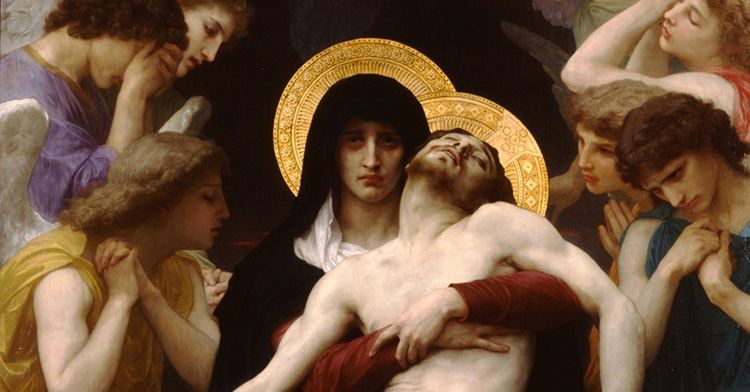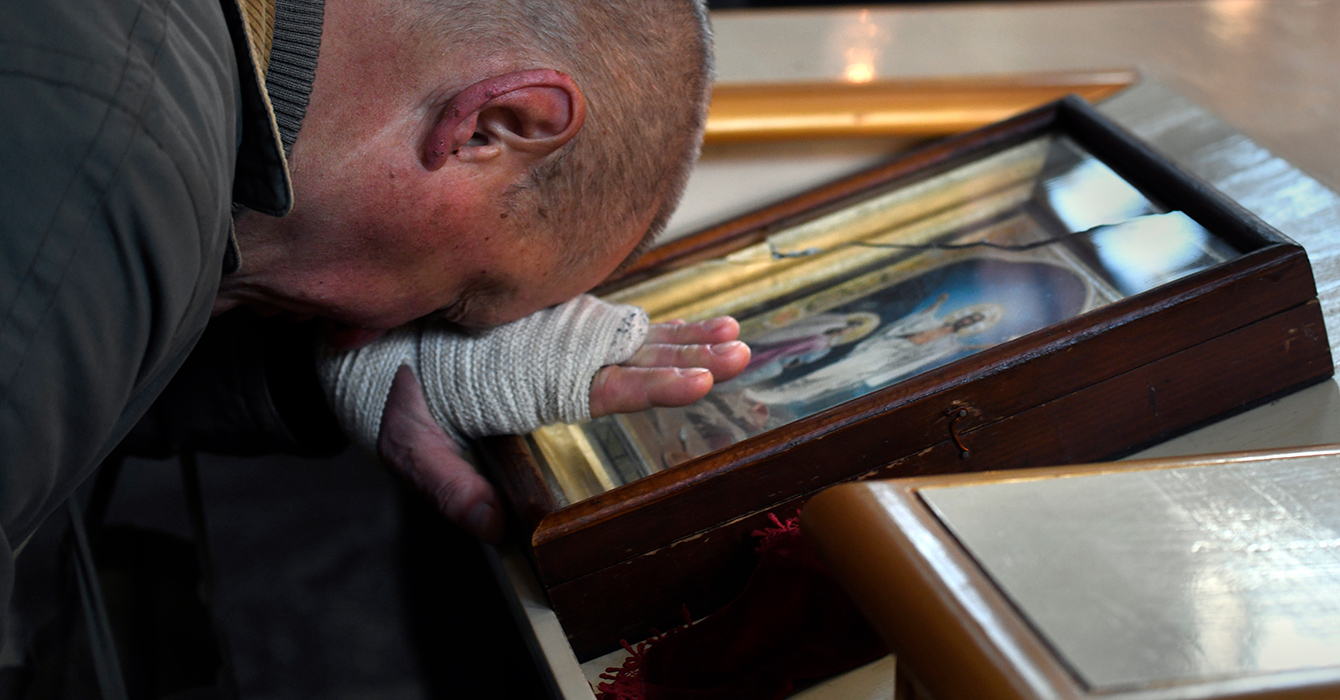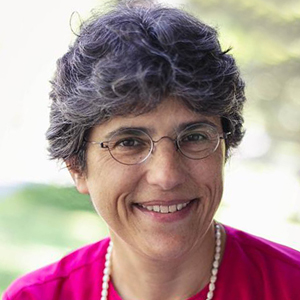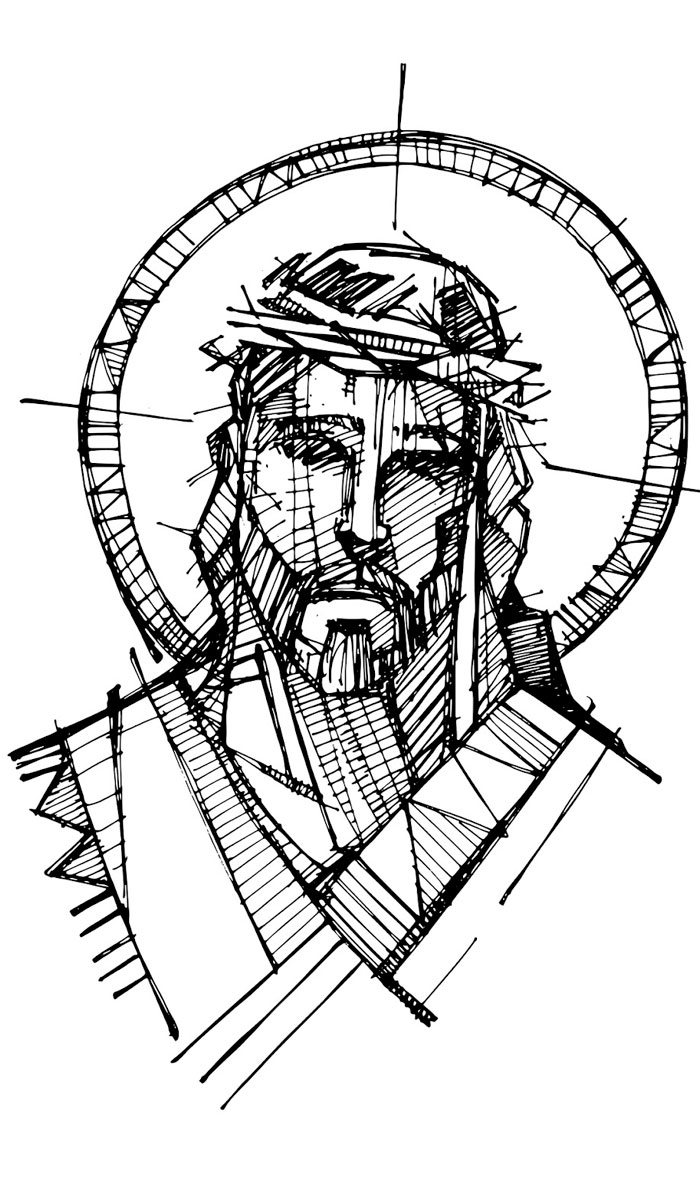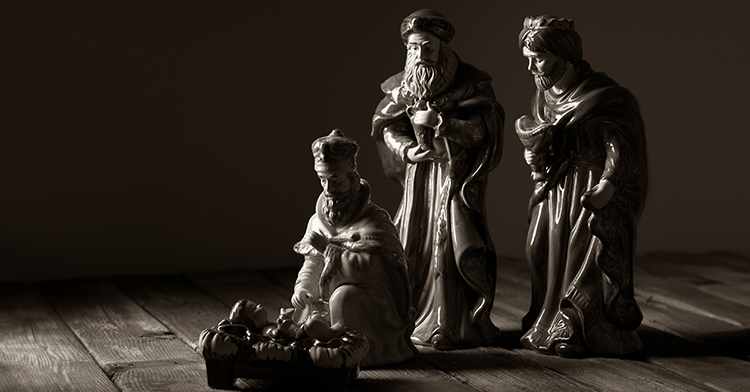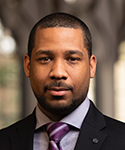Christmas Day and Easter Sunday share a similar problem.
On the Feast of the Nativity, we want to linger before the baby in the crib; on the Feast of the Resurrection, we want to linger before the empty tomb.
We’re like Peter, James and John before Jesus on the mountain -- a more exalted Jesus than they had seen before, one bathed in blinding light, flanked by Moses and Elijah. Like the three disciples, we want to erect tents for them and settle down, right there, the chosen few basking in what can quickly come to be seen as our own self-generated light. But Jesus, and the liturgical calendar, moves us briskly along.
Christmas Day is followed by the feasts of martyrs whose lives are given up in grisly and painful ways for the newborn King.
Easter Sunday is followed by a lectionary devoted to a single, unsettling, chocolate-bunny-free question, “How then shall we live?”
The lectionary proclaims, “Jesus Christ is risen from the dead.”
Yes, yes, we know. “He is risen, indeed. Who ate the last Peep?”
But then the lectionary asks, Sunday after Sunday: “What possible difference is that going to make to you? For your life?”
The answer always begins with the first church in Jerusalem, where, we are told: “All who believed were together and had all things in common; they would sell their property and possessions and divide them among all according to each one’s need” (Acts 2:44-45 NABRE).
“Alleluia” is not the first word that springs to my lips in response.
Still, what but the weight of the Easter lectionary could bring me to my current task? What but the weight of the question “now what?” could have me checking off items on today’s list: toilet bowl brush, dish soap, small drainboard, lightbulbs? What but the fear that “so what?” is my answer to “now what?” could move me to open my door?
I’m getting ready to welcome guests, guests who are strangers. I’ve never met them, or any of their friends or family. I do not speak their language. (Except for baby; I speak fluent baby. I’m counting on that being a language in which all of us can communicate.)
I will never be able to understand the journey they have made. I don’t know why they have made it, and I find myself wondering how parents could subject a young child to such risks -- except that I have no idea of the risks of their staying put. I know only my guests’ first names.
I know that they came from Guatemala and entered the United States through Tijuana, on into San Diego. I know that their trip from San Diego to Colorado Springs took 48 hours by bus. It is a trip I have taken only by plane.
I know that their fate here will be decided by a judge in Denver. I know that the baby's father is an auto mechanic and that he supported his family while they were in Tijuana by working in a car repair shop. I know the name of the baby and the name of his mother -- I have a picture of the three of them together.
I know that my husband and I are not the only people offering housing to this family during the time they will reside in our town. I know that there’s a network of people, many of them Mennonites, all of them strangers, who are helping: with housing, with translating, with driving the family to doctor appointments and ESL classes and the grocery store and court hearings. These people I know via email and not yet face to face. There has been no communication at all. Our first greetings will be at my door.
This is not the way I usually work.
I often host guests, but they are family and friends or the family and friends of family and friends. Sound cozy? It is -- as cozy as pastel Easter baskets heaped with candy and gifts for my own darling grandchildren.
But I just can’t find any mention in the book of Acts of how the members of the Jerusalem church “had all things in common” only with their nuclear families, or with the people they knew really well and trusted, or with people who looked like them and also rooted for the Irish because, Remember senior year, when we went to the national championship?
In fact, a reading of Acts suggests that widows and orphans and any who were in need, no matter who they were or how they came to such an awful state, were fed and housed and cared for. And when they weren’t? The church took that up, too, appointing deacons to make up what was lacking in the body.
One of those deacons, Stephen, was the first martyr. His story gets told in the days of Christmastide and Eastertide, just another way the seasons are linked, just another way the church gets out the broom and dustpan, sweeping up the tinsel stars and cellophane grass, making ready for the real work of nativity and resurrection.




